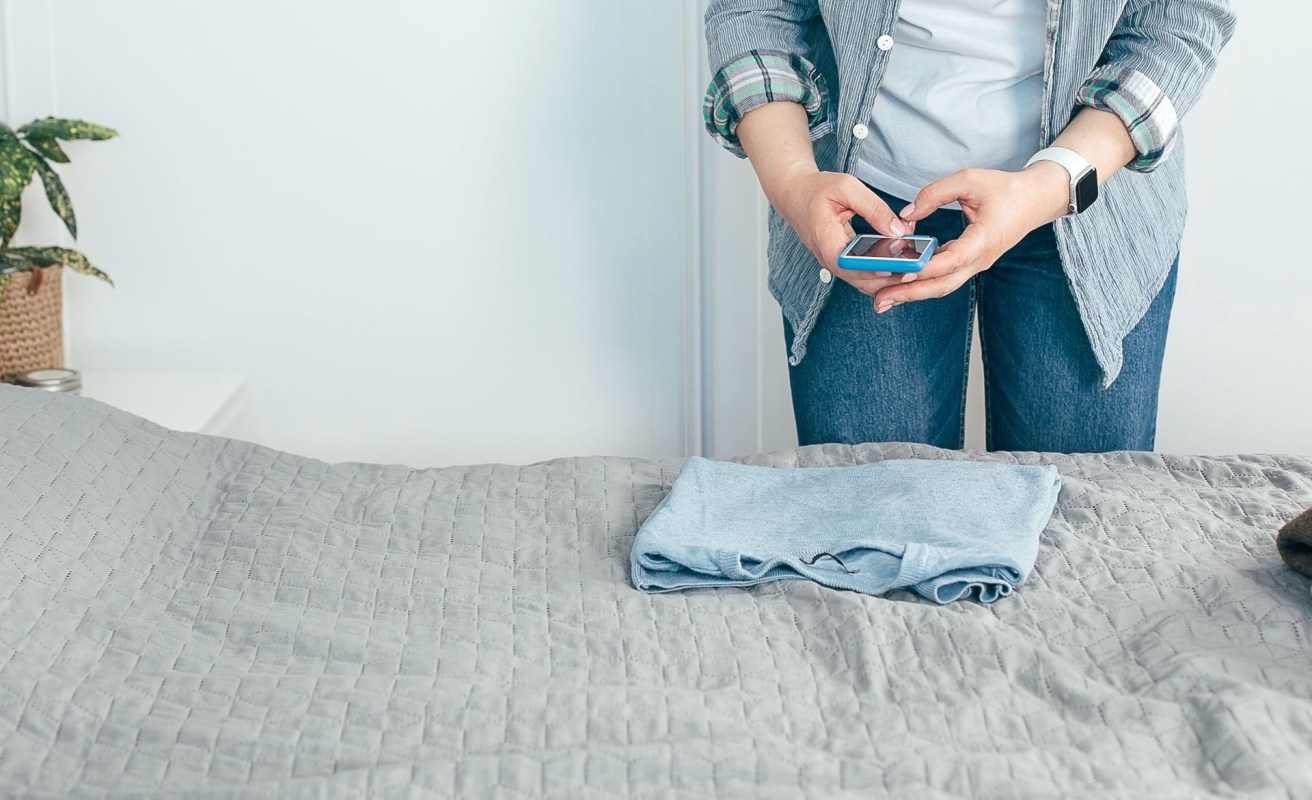How would you like to score a $990 button jacket for just $396? Or how about earning some cash for a shirt that you don't wear anymore?
AnotherTomorrow's Authenticated Resale Program wants to pay you for your pre-loved clothing, which they will resell online.
How does the Authenticated Resale Program work?
This program pays consumers when they send in pre-worn clothing from its label. The circular model also lets shoppers peruse items for some serious discounts.
To sell a piece of clothing, scan the QR code on the care/content label using your phone's camera. After the photo uploads, the company will give you an estimated sale price and tell you how much of that you'll get.
Then, you just ship your item to the company. You can choose to receive cash or store credit upon the sale of the piece.
Why are resale programs important?
Recycling old clothing is not just a savvy way to earn and save cash — it also helps promote a more sustainable fashion industry, too. Only 15% of Americans' textile waste is recycled or reused. Most of our clothing ends up in landfills, creating planet-warming gas pollution.
Many of our old garments are even shipped to countries like Kenya, where they are piled into mountains of waste that pollute communities. The U.K. alone sends more than 36 million pieces of used clothing to Kenya each year.
The fashion industry is also resource intensive. Each year, clothing makers worldwide use 93 billion cubic meters (or 24.5 trillion gallons) of water, which is contributing to water scarcity in some regions.
Furthermore, the production of plastic-based fabrics like polyester is responsible for 1% of crude oil production worldwide. These synthetic fabrics are polluting marine ecosystems — around 220,000 to 550,000 tons of microplastics make their way into global waterways each year.
AnotherTomorrow joins a number of other companies who want to pay you for your old clothing to help solve these issues. For Days accepts used garments and recycles them into new items. Knickey will even take back your worn underwear for store credit. And Smartwool wants to transform your old socks into dog beds.
A recent study confirmed that the environmental impact of textiles reuse is 70 times lower than the production of new garments.
"We know that the global used clothing industry is the most sustainable part of the clothing supply chain by a considerable order of magnitude, producing major environmental benefits including a reduction in greenhouse gas emissions," Alan Wheeler, CEO of the Textile Recycling Association said.
Join our free newsletter for easy tips to save more, waste less, and help yourself while helping the planet.









